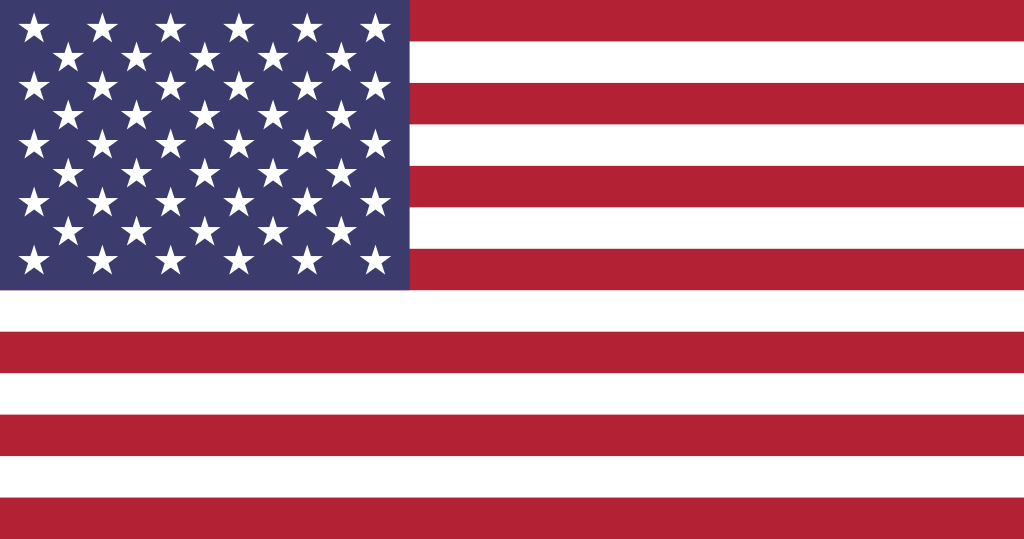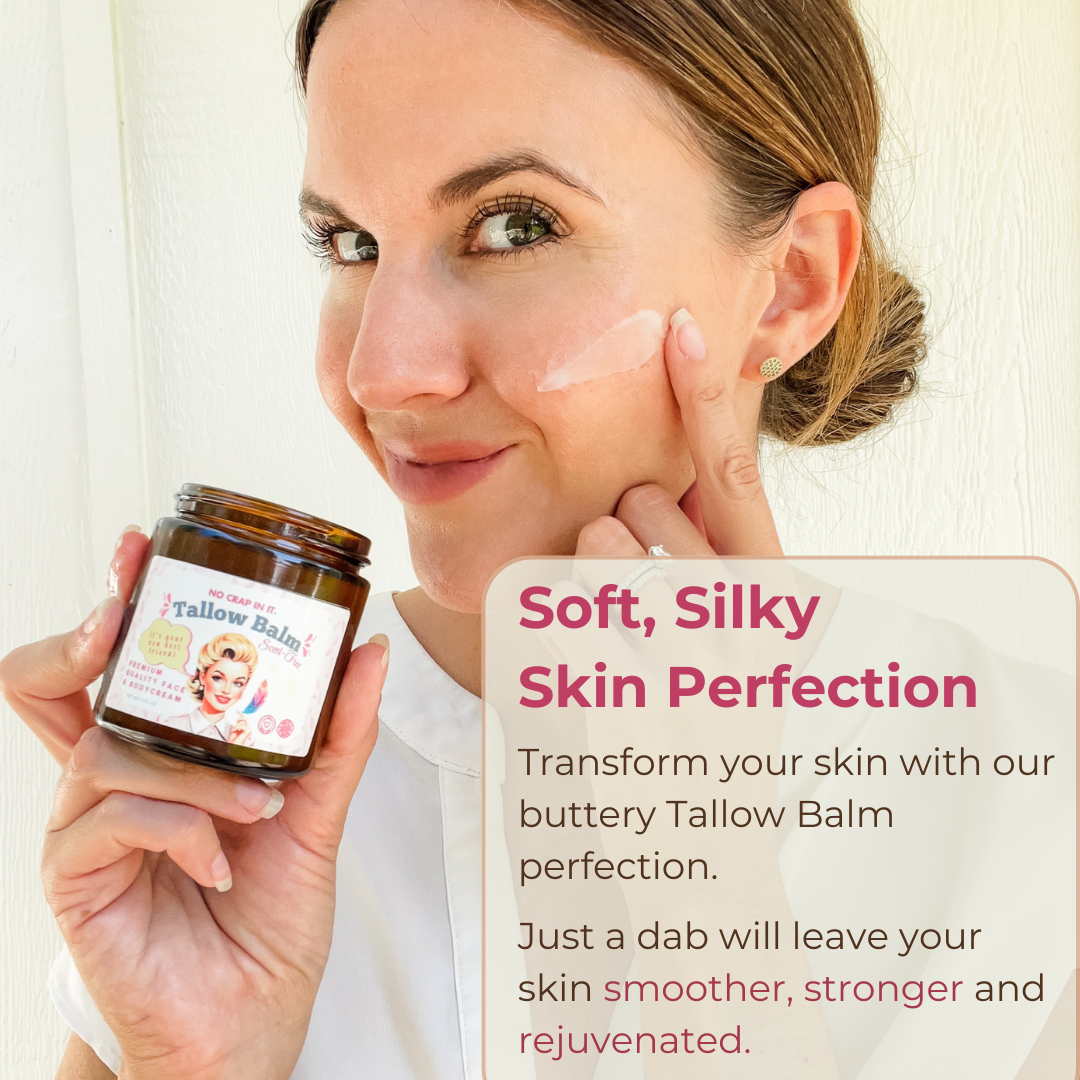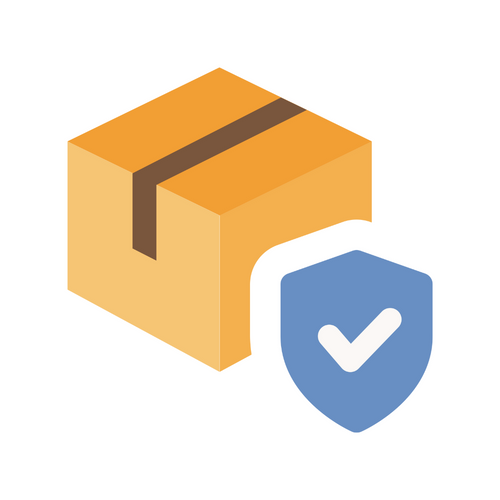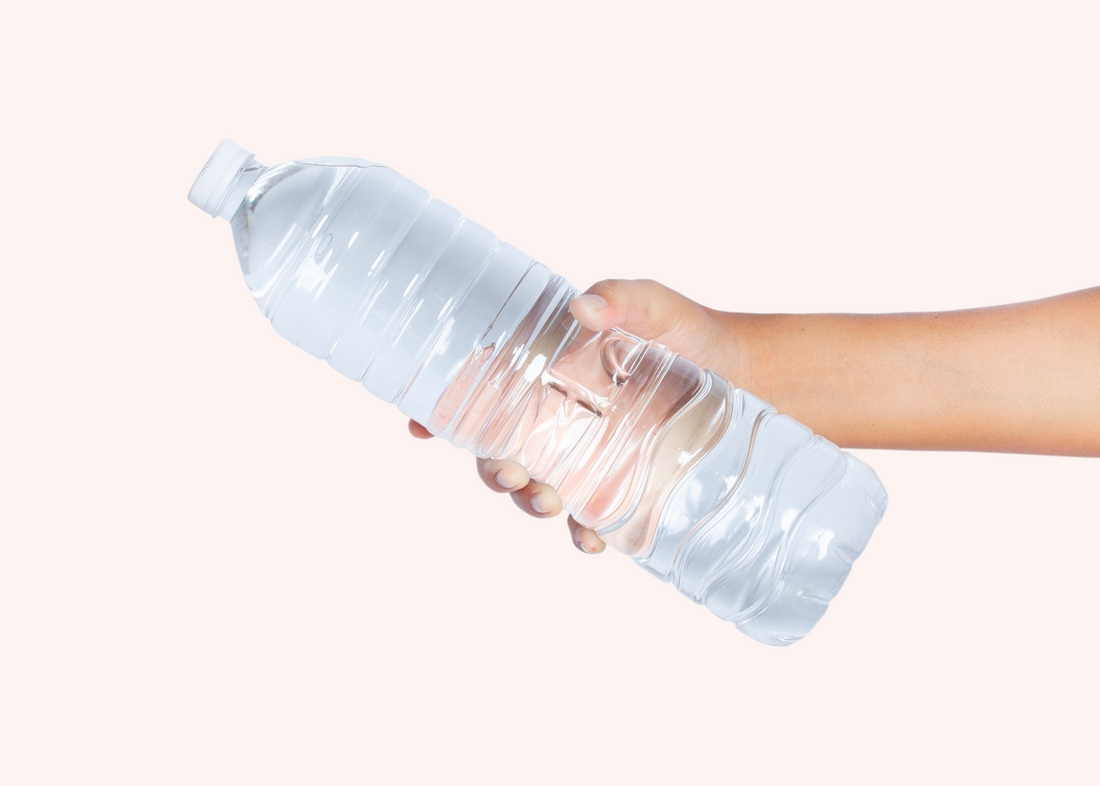Are You Eating Plastic? (Spoiler: Yes, You Are)
Did you know you might be eating, drinking, and even breathing in tiny pieces of plastic every day? It sounds crazy, but studies show that the average person consumes about a credit card’s worth of plastic every week (Thompson, R. C., et al., 2023). That’s about 5 grams of plastic—the same weight as a paperclip—going straight into your body every seven days.
Plastics are everywhere. They’re in our food packaging, water bottles, cosmetics, and even the air we breathe. But the real problem isn’t just that we consume them—it’s what they do to our health.
Let’s dive into how plastics are sneaking into your body, how they might be affecting your health, and most importantly, how you can fight back.

How Much Plastic Are You Actually Eating?
You might think, “I don’t eat plastic!” But it’s not that simple. Even if you avoid plastic-packaged foods, microplastics (tiny plastic particles) still find a way into your system.
Here’s how much plastic you’re likely consuming:
Seafood lovers beware – A 2023 study found that fish and shellfish often contain thousands of plastic particles per serving because they absorb microplastics from the ocean (Smith et al., Environmental Science & Technology).
💦 Water drinkers take in even more – Bottled water contains two times more microplastics than tap water (Schymanski et al., 2022). If you drink bottled water daily, you could be swallowing over 90,000 plastic particles per year.
🫖 Tea drinkers? Not so safe either – Many tea bags (especially the fancy silky ones) shed billions of microplastics into your cup.
💨 Plastics in the air – Yes, you’re breathing them in. A study in Paris found that people inhale about 11 tiny plastic particles per hour just from the air around them (Gasperi et al., 2021).
🥕 Even fruits and vegetables absorb microplastics from polluted water and soil (Environmental Pollution Journal, 2023). That’s right—your healthy salad might contain traces of plastic.

Plastics and Your Health: The Hidden Risks
Now that you know how much plastic you’re consuming, let’s talk about why this is a big deal. Researchers have linked plastic exposure to several major health concerns:
1. Congestive Heart Failure & Cardiovascular Disease
Recent research suggests that microplastics can trigger inflammation in blood vessels, which increases the risk of heart attacks and heart failure (New York Post, 2025). When these plastic particles enter your bloodstream, they can:
✔️ Cause artery blockages
✔️ Increase blood pressure
✔️ Lead to long-term heart problems
2. Hormone Disruptions & Weight Gain
Many plastics contain endocrine-disrupting chemicals (EDCs) like BPA and phthalates, which mess with your hormones. This can lead to:
✔️ Weight gain
✔️ Low energy levels
✔️ Mood swings
3. Liver & Kidney Damage
our liver and kidneys work overtime to filter out toxins, but microplastics make their job harder. Studies show plastics accumulate in these organs, leading to toxicity, inflammation, and potential organ damage (Nature Reviews Gastroenterology & Hepatology, 2024).
4. Gut Health Problems
✔️ Leaky gut syndrome (where toxins seep into your bloodstream)
✔️ Inflammation
✔️ Digestive issues like bloating, gas, and constipation

Signs Your Body Has Too Much Plastic
Think you might have plastic overload? Here are some warning signs:
1️⃣ Constant fatigue – Feeling sluggish even after a full night’s sleep? Plastics disrupt your hormones, making it harder for your body to recharge.
2️⃣ Unexplained weight gain – If you’re eating healthy but still gaining weight, plastic-related hormone imbalances could be to blame.
3️⃣ Brain fog – Trouble focusing or remembering things? Plastics may interfere with brain function.
4️⃣ Frequent stomach issues – Bloating, constipation, and stomach pain can signal microplastic buildup.
5️⃣ Skin problems – Acne, rashes, and dry skin are often linked to toxic overload.
6️⃣ Low immunity – If you’re getting sick more often, microplastics could be weakening your immune system.

How to Detox Your Body from Plastic Naturally
The good news? Your body can flush out plastics—but you have to help it. Here’s how:
1. Eat More Detoxifying Superfoods
Some foods are natural “plastic busters.” Add these to your diet to help remove toxins:
✔️ Spirulina & Chlorella – These blue-green algae bind to toxins and help flush them out (National Institutes of Health, 2023).
✔️ Leafy Greens – Spinach, kale, and arugula help cleanse your liver.
✔️ Lemons & Citrus Fruits – Their antioxidants boost detox pathways.
✔️ Garlic & Ginger – Natural anti-inflammatory superfoods that help repair cells.
2. Drink Clean Water (Not from Plastic Bottles!)
✔️ Use a high-quality water filter to remove microplastics.
✔️ Avoid plastic water bottles – switch to glass or stainless steel.
3. Sweat It Out
✔️ Exercise daily – sweating helps eliminate plastic toxins.
✔️ Use a sauna – studies show infrared saunas help remove heavy metals and microplastics from the body.
4. Ditch Plastic for Good
✔️ Use glass or stainless steel containers for food storage.
✔️ Avoid microwaving food in plastic.
✔️ Stop using plastic utensils and plastic-wrapped produce.
✔️ Stop using takeout containers where the food has been heated and placed in the container.

Can You Reverse Plastic Damage? (Yes, and Here’s How)
Imagine this: You’ve been unknowingly consuming tiny bits of plastic for years. Your bloodstream has carried microplastics to your organs, your gut has struggled to process them, and your cells have been silently screaming for help. Sounds like a sci-fi horror movie, right?
But here’s the plot twist: Your body is built to fight back.
Your liver, kidneys, and digestive system constantly work to remove harmful toxins—including plastics. The problem? They’re overloaded. Modern life has thrown so much junk (plastics, chemicals, processed food, pollution) at them that they’re struggling to keep up.
So, can you undo the damage? Absolutely.
But you need to give your body the tools to:
✔️ Break down stored plastic toxins
✔️ Flush them out of your system
✔️ Repair damaged cells
✔️ Strengthen your body’s natural defenses
And that’s where No Crap In It’s Detox Super Vitamins come in.

How Detox Super Vitamins Help Reverse Plastic Damage
The right nutrients can help your body actively fight back against plastic exposure. These aren’t just vitamins—they’re like a personal clean-up crew for your cells.
Let’s break down the powerhouse ingredients and why they’re crucial for reversing plastic damage:
🌿 Organic Spirulina: The Heavy Metal Magnet
Spirulina is a super algae that binds to toxins, microplastics, and heavy metals in your bloodstream and escorts them out. Think of it like a vacuum for your body, sucking up the bad stuff so your organs don’t have to.
🔹 Science Says: Studies show spirulina helps remove plastic-related toxins like BPA and phthalates while reducing inflammation (National Institutes of Health, 2023).
✅ What it does:
✔️ Flushes out toxins and microplastics
✔️ Reduces inflammation caused by plastic exposure
✔️ Boosts liver function to process plastics faster
🍵 Organic Matcha: The Cellular Repair Machine
Matcha isn’t just for fancy lattes—it’s packed with antioxidants that fight oxidative stress. Plastics cause cell damage, but matcha’s EGCG (epigallocatechin gallate) compound can repair those damaged cells.
🔹 Science Says: Matcha can protect the liver from toxins and enhance detox pathways (Journal of Clinical Biochemistry & Nutrition, 2023).
✅ What it does:
✔️ Repairs cells damaged by plastic exposure
✔️ Supports liver detox to remove plastic-related chemicals
✔️ Fights oxidative stress, slowing down aging
🌱 Organic Wheatgrass: The Gut Healer
Plastics mess with your gut microbiome, leading to bloating, indigestion, and even leaky gut syndrome (yep, your gut can actually “leak” toxins into your bloodstream).
Enter wheatgrass: this green powerhouse is loaded with chlorophyll, a natural detoxifier that helps:
✔️ Heal the gut lining
✔️ Rebalance gut bacteria (because plastics throw them off)
✔️ Improve digestion and nutrient absorption
🔹 Science Says: Chlorophyll has been shown to help remove toxins and heal damaged intestines caused by environmental pollutants (Environmental Health Journal, 2023).
🖤 Organic Activated Coconut Shell Charcoal: The Toxin Sponge
Activated charcoal is like a magnet for toxins. It binds to plastic particles and prevents them from being absorbed into your bloodstream. This means your body can flush them out faster.
🔹 Science Says: Activated charcoal is used in hospitals to remove poisons from the body, and it’s been shown to trap plastic-related toxins like phthalates and pesticides (American Journal of Clinical Nutrition, 2023).
✅ What it does:
✔️ Acts like a sponge, absorbing microplastics before they cause harm
✔️ Supports kidney function to filter out plastic toxins
✔️ Reduces bloating and digestive discomfort caused by plastics

How Long Does It Take to Detox from Plastic?
You didn’t get plastic buildup overnight, so it won’t disappear instantly. But with the right detox routine, you can start seeing real results in just a few weeks.
What to Expect When Detoxing
Week 1-2:
✅ More energy as plastic toxins start leaving your system
✅ Less bloating and digestive discomfort
✅ Clearer skin as your body eliminates stored plastics
Week 3-4:
✅ Stronger immune system as inflammation reduces
✅ Improved focus and mental clarity (goodbye brain fog!)
✅ Better metabolism and hormone balance
1-3 Months:
✅ Significantly reduced plastic buildup in your body
✅ Healthier gut, liver, and kidney function
✅ Long-term protection against environmental toxins

The Bottom Line: Take Back Control of Your Health
Plastic pollution isn’t just an environmental problem—it’s inside us. But you don’t have to accept it.
By detoxing smartly and giving your body the right tools—like No Crap In It’s Detox Super Vitamins—you can actively reverse the effects of plastic exposure.
🎯 Your next step? Stop letting plastics control your health. Start your detox today with Detox Super Vitamins and let your body heal itself naturally.
👉 Get yours now at NoCrapInIt.com
Final Thought: The world might be full of plastic, but your body doesn’t have to be. Start detoxing today—you’re worth it. 💚






